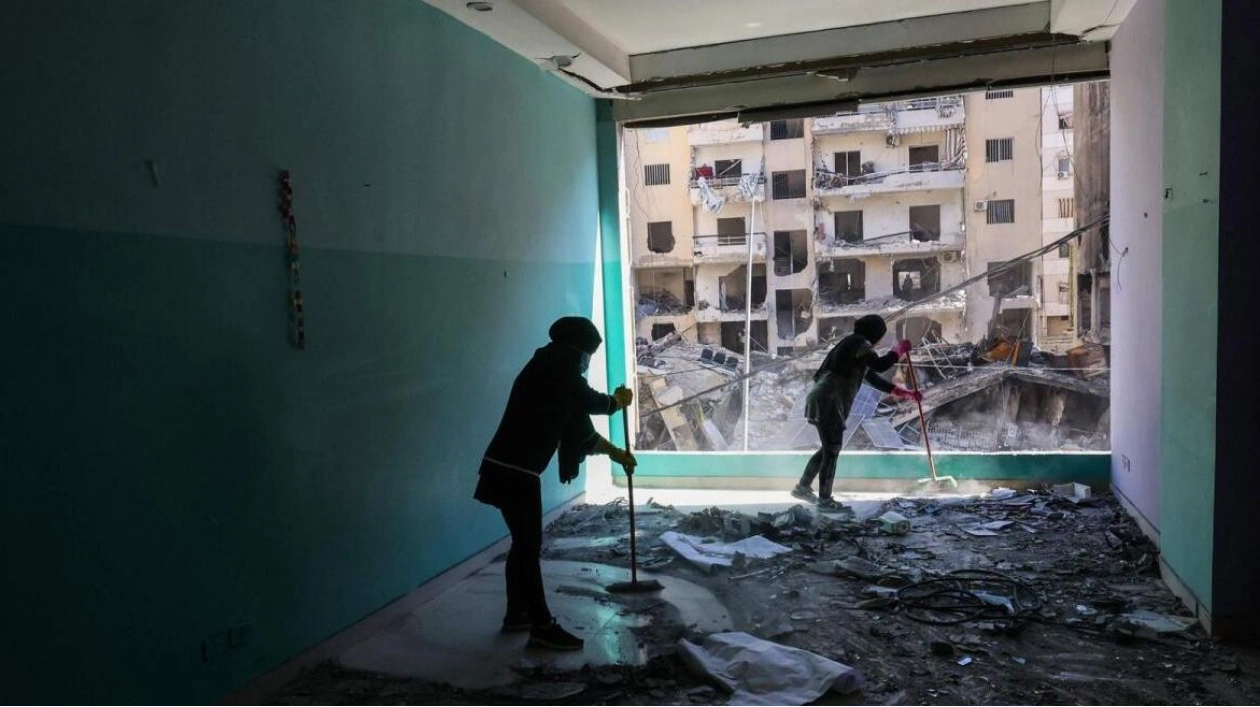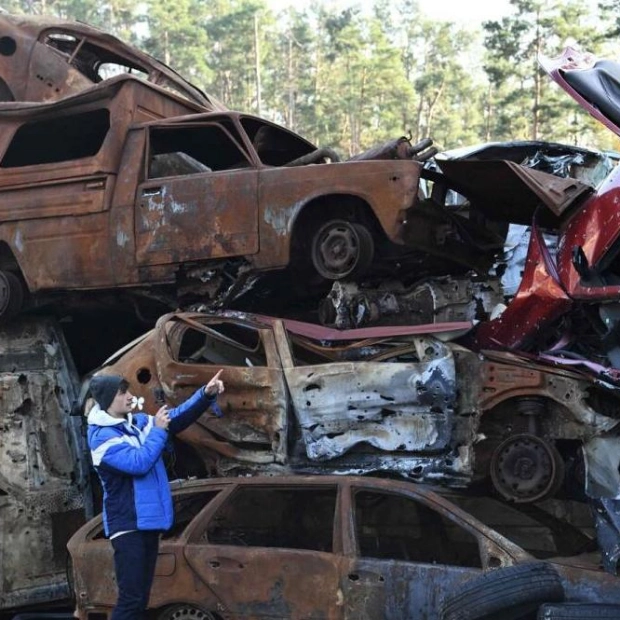Staff members of the Amel Association, a Lebanese non-governmental organisation, were seen clearing debris at their branch in Beirut's southern suburbs Hay El-Sellom neighbourhood on Monday, following damage caused by an Israeli strike on a nearby building. — AFP
Israel issued a stern warning on Tuesday, threatening to re-engage in war with Lebanon if the truce with Hezbollah fails. Defence Minister Israel Katz stated that any resumption of hostilities would be met with deeper and more intense attacks, targeting not just Hezbollah but the Lebanese state itself. This marks the strongest threat since the truce was agreed to end 14 months of conflict with Hezbollah. Katz emphasized that Israel would hold Lebanon accountable for any violations by militants, stating, "If we return to war, we will act strongly, we will go deeper, and the most important thing they need to know: that there will be no longer be an exemption for the state of Lebanon." He further clarified, "If until now we separated the state of Lebanon from Hezbollah... it will no longer be [like this]."
Despite the truce, Israeli forces have continued to conduct strikes in southern Lebanon, targeting what they claim are Hezbollah fighters who have ignored the agreement to cease attacks and withdraw beyond the Litani River, approximately 30km from the frontier. On Monday, Hezbollah retaliated by shelling an Israeli military post, while Lebanese authorities reported at least 12 fatalities from Israeli airstrikes. Katz described the Hezbollah attack as "the first test" and characterized Israel's response as robust.
Katz urged the Beirut government to authorize the Lebanese army to enforce the truce, ensuring Hezbollah's withdrawal beyond the Litani and dismantling all related infrastructure. He warned, "If they don't do it and this whole agreement collapses, then the reality will be very clear." Top Lebanese officials have appealed to Washington and Paris to pressure Israel to uphold the ceasefire, following numerous military operations on Lebanese soil that Beirut considers violations.
Caretaker Prime Minister Najib Mikati and Speaker of Parliament Nabih Berri, a close Hezbollah ally, have engaged in diplomatic communications with officials in the White House and French presidency to halt Israeli violations. Mikati emphasized the intensification of diplomatic efforts since Monday and announced a recruitment drive for the Lebanese army to bolster its presence in the south. US State Department spokesperson Matt Miller stated that the ceasefire "is holding" and that the US had "anticipated that there might be violations." French Foreign Minister Jean-Noel Barrot also spoke with his Israeli counterpart, urging adherence to the ceasefire.
The truce, which took effect on November 27, prohibits Israel from conducting offensive military operations in Lebanon and requires Lebanon to prevent armed groups, including Hezbollah, from attacking Israel. It grants Israeli troops 60 days to withdraw from south Lebanon. An international monitoring mission, chaired by the United States, is tasked with overseeing, verifying, and enforcing the truce, though it has yet to commence its work. Berri has called on the mission to urgently address Israel's breaches, noting at least 54 violations by Israel so far. Israel maintains that its continued activity in Lebanon is aimed at enforcing the ceasefire.
Lebanese Prime Minister Mikati met with US General Jasper Jeffers in Beirut on Monday, who will chair the monitoring committee. France's representative to the committee, General Guillaume Ponchin, is expected to arrive in Beirut on Wednesday, with the committee's first meeting scheduled for Thursday. Sources indicate an urgency to finalize the monitoring mechanism, warning that further delays could exacerbate the situation.
Source link: https://www.khaleejtimes.com






